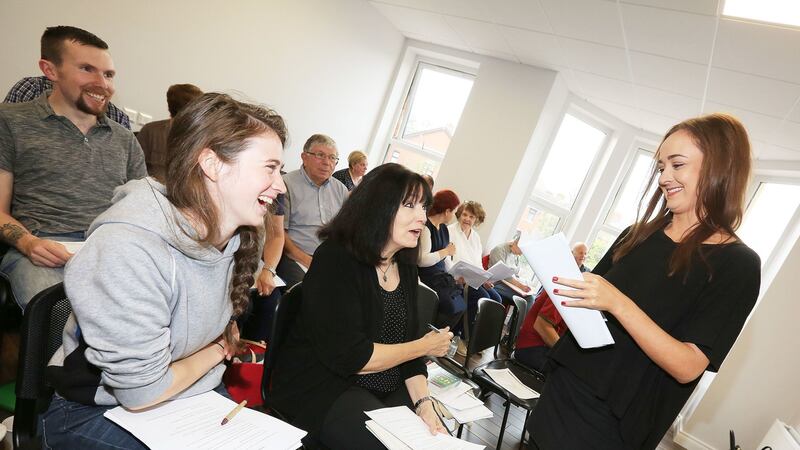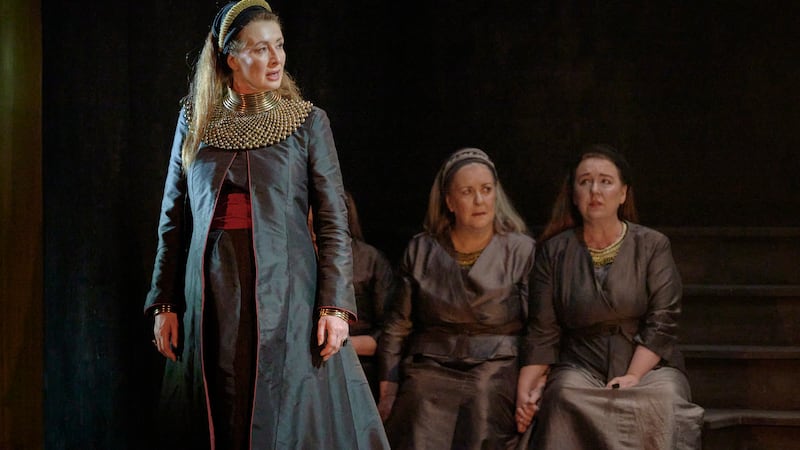DIA DAOIBH a chairde, we’re back with a fun-filled hello Bluffer’s Guide to Irish – or maybe not.
Many people find it difficult to learn a language for a number of reasons.
Tá sé ródheacair - it’s too difficult; níl an t-am agam - I don’t have the time and the old chestnut bhí drochmhúinteoir agam ar scoil - I had a terrible teacher at school and let’s face it in the past many Irish teachers were of the “gammon” variety, trying to beat Irish into unwilling pupils. They may still exist but learning Irish is more about having fun nowadays is cuma cad é an caighdeán ar a bhfuil tú - no matter what level you’re at, from an bhfuil cead agam dul go dtí an leithreas? - May I go to the toilet? to reading medieval Irish manuscripts in European libraries.
The idea is that learning has to be fun or there won’t be much learning done.
And so, thanks again to preply.com, here are few hints to help you learn Irish or any second language.
First of all, it’s good to immerse yourself in the language.
Nuair a bhí sé ag foghlaim Fraincise - when he was learning French, the Bluffer watched French films, listened to French radio and his love of opera came because he listened to Bizet’s The Pearl Fishers - so he could croak in French too.
So immerse yourself in Irish – watch TG4 and the BBC’s Irish output, éist leis an raidió - listen to the radio, be it Raidió Fáilte, Blas, Raidió na Gaeltachta and léigh leabhair - read books. If you’re a beginner, don’t be embarrassed to read leabhair do pháistí - books for children, they are a great introduction to the language.
Many language learners can fixate on gramadach na Gaeilge - Irish grammar and the stór focal - vocabulary but it’s important to have good foghraíocht - pronunciation from the beginning because it’s more difficult to fix in the later stages of language learning.
You don’t have to sound as if you have just come from ag baint móna - cutting turf in the Donegal Gaeltacht. Many people fear speaking in another language because they are afraid go ndéanfaidh siad staicín aiféise díobh féin - that they will make a buck eejit of themselves or go ndéanfaidh siad botún - or that they will make a mistake.
One of the Bluffer’s favourite language quotes says “Speaking with a foreign accent is a sign of courage.”
It takes courage to get your mouth round certain words, remembering grammar and pronunciation and having the confidence to use it when speaking to other people.
But the more you speak, the better you will become, the more mistakes you make, the more you will learn. It certainly doesn’t mean you’re stupid but you need to be able to laugh at your own mistakes.
Talk to yourself in your chosen language, say things that are hard to pronounce - the r in French, the different ch’s in Irish, the tones in Chinese and do it over and over and over again. That way new sounds will become comfortable in your mouth. Then you can go out and have fun with your second language.
CÚPLA FOCAL
Tá sé ródheacair(taa shay royaker-) - it’s too difficult
níl an t-am agam(neen un tam ugum) - I don’t have the time
bhí drochmhúinteoir agam ar scoil(vee drawkhwoontchore ugum er skul) - I had a bad teacher at school
is cuma cad é an caighdeán ar a bhfuil tú (iss cuma cadge ay un kyjaan er a wil too) - no matter what level you’re at
an bhfuil cead agam dul go dtí an leithreas?(un wil cad ugum dul gaw jee un lehriss) - May I go to the toilet?
Nuair a bhí sé ag foghlaim Fraincise (noor a vee shay eg foe-lim frankisha) - when he was learning French
éist leis an raidió (aysht lesh un raadeeo) - listen to the radio
lé?gh leabhair (lay lyore) - read books
gramadach na Gaeilge(gramadakh na gayliga) - Irish grammar
stór focal(store fawkle) - vocabulary
foghraíocht(foree -akht) - pronunciation
ag baint móna(eg bwintch mawna) - cutting turf
go ndéanfaidh siad staicín aiféise díobh féin (gaw nyanhee shade stackeen aafaysha deev hane) - that they will make a buck eejit of themselves
go ndéanfaidh siad botún(gaw nyanhee shade bawtoon) - that they will make a mistake


